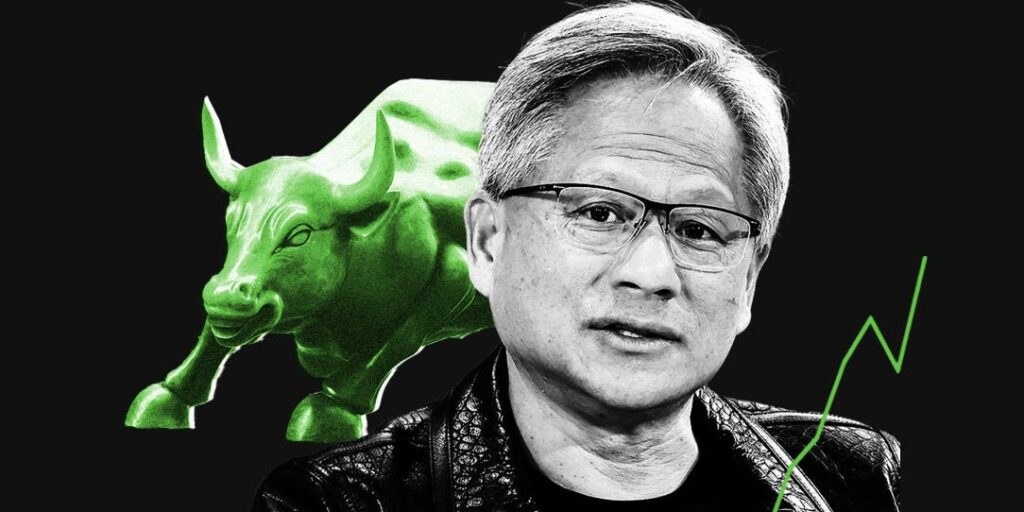Nvidia CEO Jensen Huang said the shortages had left customers “emotional” and the situation tense.
Huang, nicknamed the “King of AI,” said demand for Nvidia’s products is so high because everyone wants to be first and they want lots of them. He said Wednesday at a Goldman Sachs technology conference in San Francisco that despite the company’s best efforts, relationships with customers are strained.
“We have a lot of help from a lot of people, and everyone is counting on us,” Huang said, adding, “The demand is so great that our provision of parts, technology, infrastructure and software has been really emotional for people.”
The CEO added that while demand for Nvidia’s latest chip product, Blackwell, is surging, the suppliers to which the company outsources hardware production are also catching up.
Demand for Nvidia’s graphics processing units is surging as companies and countries rush to secure supplies to improve AI capabilities.
“There may have been a lot of emotional customers today. It’s natural. They’re nervous. We’re trying to do our best,” Huang said.
As one of the few players in this space, Nvidia has a strong following among all companies looking to use AI models to accelerate business and the economy. These AI models need to be trained on huge amounts of data and carefully fine-tuned, which requires thousands of GPUs, putting pressure on chip demand.
In August, Nvidia raised concerns that the launch of its next-generation AI chip, Blackwell, would be delayed by two to three months, pushing shipments to the first quarter of 2025 instead of later this year, affecting customers that rely on Nvidia chips, including Meta, Microsoft, Google and smaller cloud companies.
On an earnings call last month, Huang promised the company would ship billions of dollars’ worth of Blackwell GPUs by the fourth quarter, a metric that analysts said was vague. Nvidia executives on the call remained vague about the profits the company expects from Blackwell chips, but they did much to allay concerns about shipping delays.
Analysts and experts have said for some time that the company’s ability to deliver on those promises will be crucial.
Nvidia’s shares fell 9.5% last week, wiping $278.9 billion from its market capitalization, the biggest one-day loss ever by a U.S. company. The selloff was partly driven by the economy, but also by renewed doubts about when tech giants will see results from their huge investments in AI.

